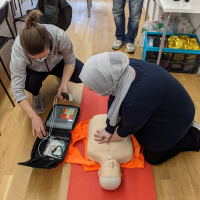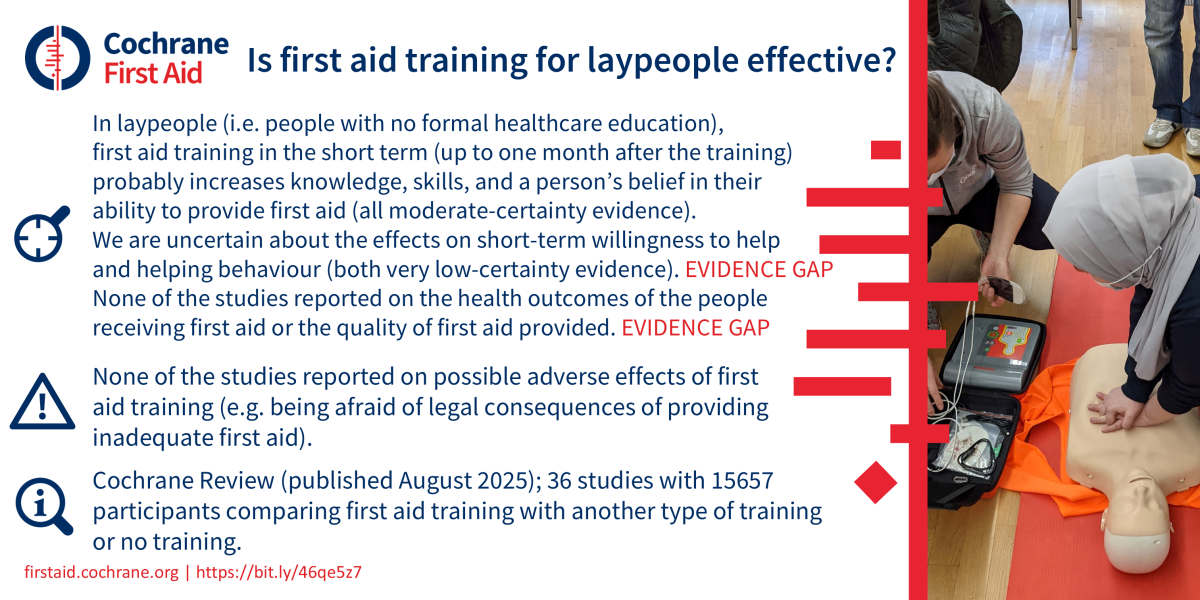
A newly published Cochrane systematic review, co-authored by the Cochrane First Aid team, provides insights into the effectiveness of physical first aid training for laypeople (i.e. individuals without formal healthcare education).
synthesized evidence from 36 randomized controlled trials involving over 15,000 participants, comparing physical first aid training to no training or alternative types of training. The studies spanned various age groups and countries, though only two were conducted in low- or lower-middle-income settings.
The findings confirm that first aid training probably improves participants’ knowledge, practical skills, and beliefs in their ability to help (self-efficacy) up to one month after the training. However, the review also uncovered important gaps:
- None of the studies assessed whether training leads to better health outcomes for those receiving first aid;
- Only one study investigated whether it increases helping behavior in real-life emergencies;
- Evidence on participants’ self-reported willingness to help was also limited.
This review underscores the value of first aid education while also highlighting the need for additional research, especially studies that evaluate real-life health outcomes and long-term impact, use standardized outcome measures, and explore the effectiveness of first aid training in low-resource settings.
As part of Cochrane First Aid’s mission to bridge the gap between evidence and practice, we see this review as a key step toward identifying what works and where future research should focus on.
Below, you can find our blogshot that provides a snapshot of the review findings. Other formats that contain the repackaged information will follow soon. Keep an eye out for those on .

